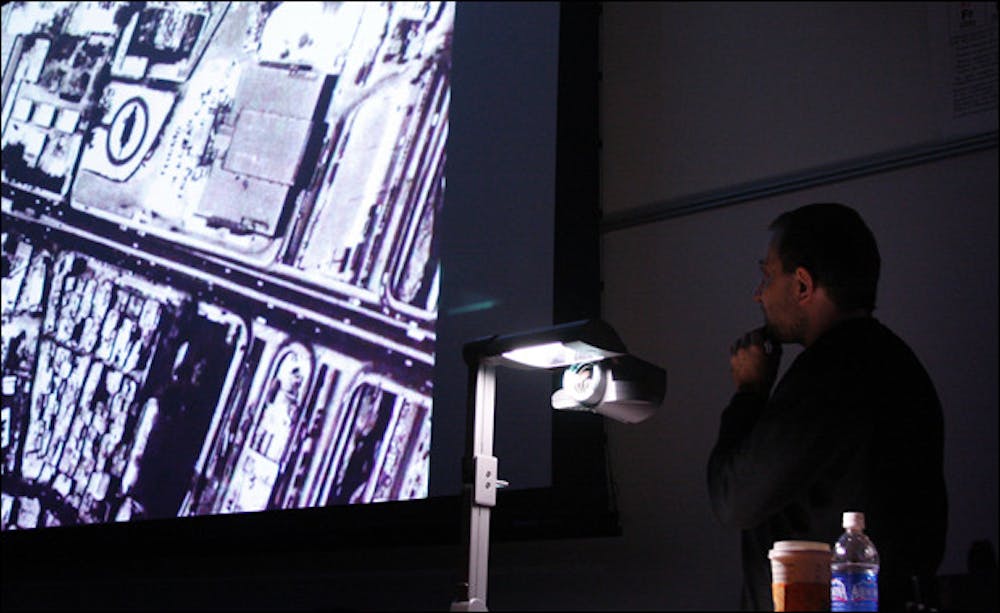An underground nightclub, a restaurant built from a ruined Lebanese home and an incomplete house on the top of a mountain were some of the works Lebanese architect Bernard Khoury shared with ASU students, faculty and community members Monday night.
Khoury spoke about and presented illustrations of some of his projects to an audience of more than 150 people at the Cronkite School building.
Khoury, known as a bad boy of architecture for breaking with tradition, spoke to the audience about both his completed buildings and projects that never made it past an idea.
“I look at my buildings as very diverse situations and as very different situations as possible, and hopefully I have the capacity to think of every situation in the appropriate ways,” Khoury said.
His creations include an underground sushi restaurant, as well as a Kuwait mall currently in progress with waterfalls throughout and a hotel on top.
Future Arts Research @ ASU hosted the event.
Associate Director of F.A.R., Marilu Knode, said architecture students could learn from Khoury’s philosophy of flexibility and practicality.
“You can dream all you want, but you can only work where there’s an opportunity. But you can actually take that opportunity and really comment on it as well,” Knode said.
Khoury also made the point that modernity does not have to be based off American designs. Instead, modernity can be inspired by other cultures around the world, he said.
“I cannot tolerate or understand why 100 percent of the malls built in Kuwait are literally taken from the U.S. They are replicas of the United States,” he said. “The developers in this part of the world don’t understand that this is a bad thing to do — that it’s a very dangerous thing to do.”
This does not imply he is against modernity, Khory said, only that there is another modernity that can come out from other parts of the world.
Marianne Barrett, associate dean for academic affairs at the Cronkite School, attended the event because she and her husband are interested in modern architecture.
Barrett said she thought Khoury related to his designs almost as to something living.
“It seemed to me that his philosophy is that the buildings that he designs and the building at the end of the whole process are different, so you do get the idea that to him the building is a dynamic thing,” she said.
Reach the reporter at snrodri2@asu.edu.




